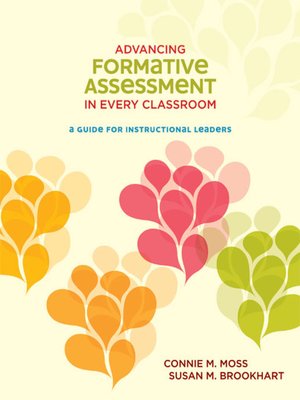Advancing Formative Assessment in Every Classroom
ebook ∣ A Guide for Instructional Leaders
By Connie M. Moss

Sign up to save your library
With an OverDrive account, you can save your favorite libraries for at-a-glance information about availability. Find out more about OverDrive accounts.
Find this title in Libby, the library reading app by OverDrive.



Search for a digital library with this title
Title found at these libraries:
| Loading... |
Formative assessment is one of the best ways to increase student learning and enhance teacher quality. But effective formative assessment is not part of most classrooms, largely because teachers misunderstand what it is and don't have the necessary skills to implement it.
In this practical guide for school leaders, authors Connie M. Moss and Susan M. Brookhart define formative assessment as an active, continual process in which teachers and students work together—every day, every minute—to gather evidence of learning, always keeping in mind three guiding questions: Where am I going? Where am I now? What strategy or strategies can help me get to where I need to go? Chapters focus on the six elements of formative assessment: (1) sharing learning targets and criteria for success, (2) feedback that feeds forward, (3) student goal setting, (4) student self-assessment, (5) strategic teacher questioning, and (6) engaging students in asking effective questions.
Using specific examples based on their extensive work with teachers, the authors provide
As Moss and Brookhart emphasize, the goal is not to "do" formative assessment, but to embrace a major cultural change that moves away from teacher-led instruction to a "partnership of intentional inquiry" between student and teacher, with better teaching and learning as the outcome.






